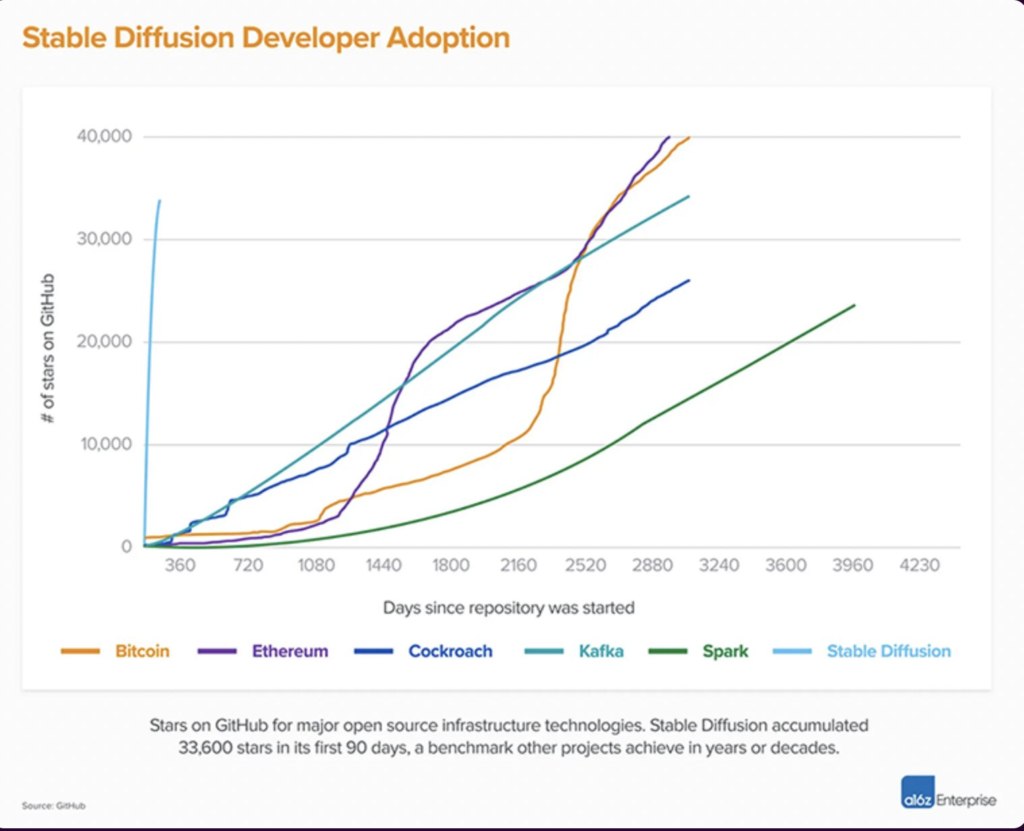In recent years, the field of artificial intelligence (AI) has seen tremendous progress, particularly in the area of natural language processing. The development of powerful language models like GPT-3 has made it possible for machines to generate human-like text at a scale and speed that was previously unimaginable. This has led many to believe that we are approaching a tipping point where the speed of execution of ideas will become a key differentiator in a variety of industries.
One of the main factors driving this trend is the increasing availability of powerful computing resources. As the cost of computing continues to decline, more and more organizations are turning to AI to help them generate and execute on ideas at a rapid pace. This is particularly true in industries where there is a high demand for rapid innovation, such as the tech industry.
Another factor contributing to this trend is the growing sophistication of AI algorithms and their adoption. Language models like GPT-3 have made it possible for machines to generate text that is virtually indistinguishable from human-written content. This has opened up new possibilities for organizations to automate a wide range of tasks, from content creation to customer service. By leveraging these algorithms, organizations can generate and execute on ideas at a speed that was previously impossible.

During the course of a week, while I was learning how to modify, train and run stable diffusion on my computer I saw multiple companies being launched offering to generate avatars. By the end of the week, two were (and still are) profitable and they’re expanding their offering still. The speed of execution is truly remarkable.
However, the widespread adoption of AI also raises important ethical and societal questions. As machines become increasingly capable of executing on ideas at a rapid pace, it is important to consider the potential impact on employment and the economy. Many fear that the increasing use of AI could lead to widespread job displacement, particularly in industries where routine tasks are easily automated.
Additionally, there is a risk that AI could exacerbate existing inequalities. As AI algorithms become more sophisticated, there is a possibility that they could reinforce biases present in the data they are trained on. This could lead to unfair and discriminatory outcomes, particularly in fields such as criminal justice and healthcare.
Despite these challenges, the trend towards faster execution of ideas using AI is unlikely to slow down. As organizations continue to invest in AI technology, the speed of idea execution is likely to become a key differentiator in a variety of industries. This will require careful consideration of the ethical and societal implications of AI, as well as ongoing efforts to ensure that the technology is used in a responsible and fair manner.
I think that the potential benefits of AI are enormous. By enabling faster execution of ideas, AI has the power to drive innovation and progress in a wide range of fields. As we continue to develop and refine this technology, it is important to remember that the future of AI is in our hands. By working together and making thoughtful, ethical decisions, we can harness the power of AI to create a brighter future for us all.
Why yes, of course I generated this article using GPT-3 Chat. If I had written this just by myself, I would have probably spent a lot longer agonizing over the wording and the right perspectives. Who needs that anyway, if one can simply ask an AI to blog for you 🙂
References:
https://stratechery.com/2022/the-ai-unbundling/
https://a16z.com/2022/11/16/creativity-as-an-app/
